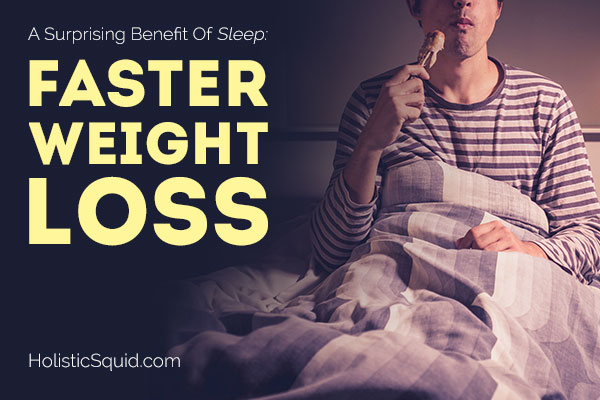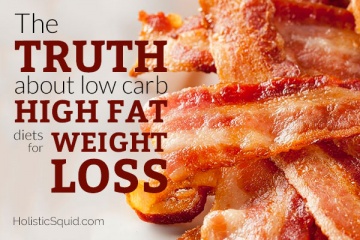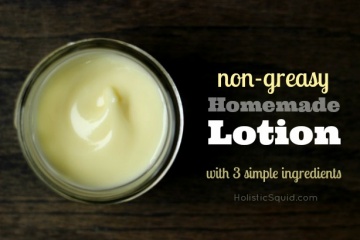
Ah, sleep. Fluffy pillows. Smooth, cool sheets. Are you feeling me yet? If you are, the benefit of sleep isn't lost on you. Especially if you have a little one.
As it turns out, most folks are aren't getting enough sleep (source). And the medical community has finally started to realize the benefit of sleep, noting a link between too little sleep and things like:
- Diabetes
- Hypertension
- High cholesterol
- Obesity
- Depression
- Substance abuse
Sleep deprivation leads to a cascade of events (source). And your metabolism is hit the hardest. But you too can feel the benefit of sleep, including faster weight loss — just follow my five practical tips for better sleep at the end of this article.
Why your sleep is more than just 40 winks
Sleep is when the body restores itself. During alternating cycles of non-REM and REM sleep, your breathing and heart rate slow down, your body temperature drops, and your muscles relax. The benefit of sleep goes beyond deep relaxation. This is a time for tissue growth and repair. Your body detoxifies. And your hormones release and self-regulate.
Good sleep is defined by its duration and quality.
- Duration – The length of good sleep time varies depending on age. For adults, you want to aim for 7-9 hours of shut-eye each night.
- Quality – Sleep quality is when you get into REM sleep frequently enough to restore your body's functions. Note that sleep quality can drop if you experience problems like anxiety, depression, allergies, or gastric reflux.
The benefit of sleep is in your waistline
A good night's sleep increases energy
When you sleep, growth hormone is released. This hormone works at the cellular level to boost energy production. One benefit of a good night's sleep is that your cells are rejuvenated, giving you more energy to power through your day.
A good night's sleep reduces sugar cravings
Sleep naturally lulls your stress hormones into a state of tranquility. As you sleep, cortisol decreases. Lower cortisol reduces daytime sugar cravings. With less sugar cravings, your blood sugar is more stable and you're less likely to succumb to (or even feel) that 3 pm hankering for your favorite chocolate treat.
A good night's sleep improves fitness recovery
Your muscles see the benefit of sleep too. As you rest, your muscles relax and blood flow increases. This means a natural, easy detox and faster muscle recovery.
A good night's sleep allows for better detoxification
I mentioned this benefit of sleep above, but its worth exploring a little more. According to a study from University of Rochester Medical Center, when you sleep, your brain cells shrink. This allows the fluid in your brain to flush out toxins that build up during your waking hours. If that's not enough, one more benefit of sleep is that it supports liver detoxification, which runs in sync with your own 24-hour sleep-wake cycle.
A good night's sleep controls blood sugar and decreases belly fat
Sleep helps to balance blood sugar. The hormones involved include those that impact metabolism:
- Insulin – Controls blood sugar
- Leptin – Tells your brain that you are full
- Ghrelin- The “gremlin” hormone that tells your brain you are hungry
Multiple studies have emphasized the benefit of sleep and shown that poor sleep causes your cells to become insulin resistant, even without the presence of diabetes (source). In addition, the hormones that manage your metabolism fall out of balance.
So, stop beating yourself up and catch some Z's. When you are sleep deprived, the constant desire to eat is a result of this hormonal imbalance…not necessarily your willpower.
Five practical tips to help you sleep
Insomnia is no joke. If you want to see the benefit of sleep and lose weight, set yourself up for sleep success:
#1 – Give yourself the OK to go to sleep
It can be tempting to stay up late after the kids hit the sack in an attempt to have “me time.” But while you will get some extra time to yourself, it will be at the expense of your waistline.
#2 – Spend time outside in natural light
Natural sunlight helps to set your circadian rhythm, the internal clock that tells your body when to rise and when to snooze. Make it a daily routine to grab some sunlight.
#3 – Eliminate substances that interfere with sleep
There are multiple stimulants that hinder your ability to fall and stay asleep. These include caffeinated stimulants such as coffee (even decaf), iced tea, and chocolate.
For some people, eating any food at night affects their ability to fall asleep. If you want the full benefit of sleep, experiment with this to determine how food and drink affect you. While a simple glass of wine will help you fall asleep, it will also disrupt your REM patterns and get in the way of full sleep restoration.
#4 – Stick to a sleeping schedule
Just like you teach your children to know what is expected of them, you can also train your body. Going to bed and waking up at the same time every day – even on weekends – allows your body to know what is expected of it. This makes falling asleep effortless.
#5 – Get regular activity
Activity helps to relieve stress and burn energy. This means that once the sun sets, it's a little easier to wind down and fall asleep. If you feel like you're too busy to exercise, chances are you have 10 or 20 minutes to squeeze in this workout.
What helps you fall asleep at night? Share in the comments below!
Daphne Olivier is a registered, yet unconventional dietitian who runs My Food Coach, her nutrition coaching practice. She has a passion for real food and how it affects the body. Daphne works with individuals and groups, in person and online.












I totally agree with this point ” A good night’s sleep allows for better detoxification!” I’m living example of sleep being able to allow you to detox better. I’ve recently started doing a cleanse with juicing and my detox symptoms were just unbearable. I noticed that since I’ve started getting better rest the symptoms seemed to be less and my other conditions have reduced drastically. If you don’t get a good nights rest then its hard to be healthy no matter what you do!